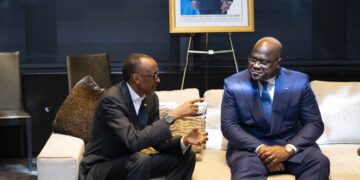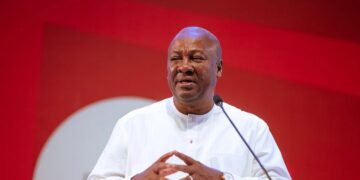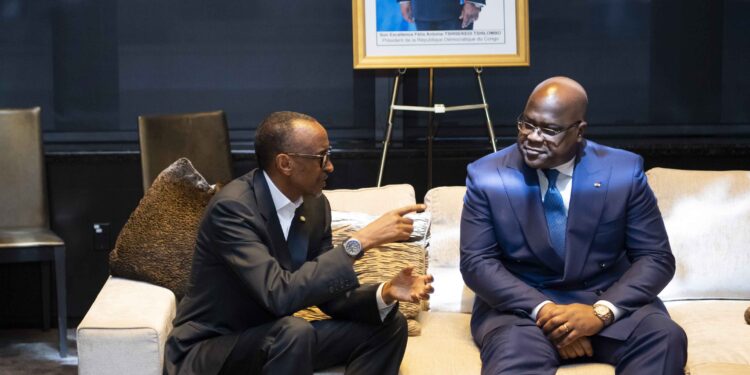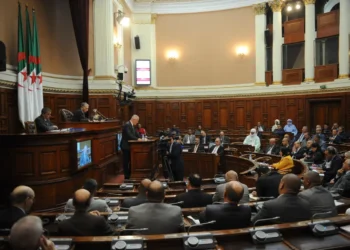By Enyichukwu Enemanna
A peace deal recently signed in Washington between the Democratic Republic of Congo and Rwanda, aiming to end decades of conflict in the eastern region of the DRC, paves the way for “a new era of stability”, Congolese President Felix Tshisekedi said Monday.
The region of the East African country is rich in lucrative mineral resources but has in the past three decades, been plagued by deadly violence.
Earlier this year, fighting intensified when the Rwanda-backed M23 armed group seized territory, including the key cities of Goma in late January and Bukavu few weeks later.
The heightened offensive left thousands of people dead and increased a humanitarian crisis for hundreds of thousands of displaced people, DRC government and UN said.
Speaking at a ceremony to mark the 65th anniversary of the DRC’s independence from Belgium on Monday, Tshisekedi said the text “opens the way to a new era of stability, cooperation, and prosperity for our nation.”
After a series of systematically broken truces and ceasefires in recent years, and the failure of several attempts at negotiation between Kinshasa and Kigali, Congolese and Rwandan foreign ministers signed a peace deal in Washington on Friday, witnessed by US Secretary of State Marco Rubio.
A parallel mediation bid brokered by Qatar between the DRC government and the M23 is also ongoing.
A representative from Qatar attended Friday’s signing of the agreement, described as a significant milestone towards peace by the African Union and the United Nations.
Tshisekedi is due to meet his Rwandan counterpart, Paul Kagame, in Washington in the coming weeks.
The agreement outlines provisions for the “respect for territorial integrity and halting hostilities” in eastern DRC but is still to be implemented.
It calls for “a lifting of defensive measures” by Rwanda or the withdrawal of Rwandan soldiers from the DRC.
Rwanda has denied directly supporting the M23 but has demanded an end to another armed group which it says threatens the country—the Democratic Forces for the Liberation of Rwanda (FDLR), which was established by ethnic Hutus linked to the massacres of Tutsis in the 1994 Rwanda genocide.
The agreement calls for the “neutralisation” of the FDLR by Kinshasa.
It also includes economic measures but has scanty details.
In April, the Congolese President discussed a mining agreement with Massad Boulos, a Lebanese-American businessman and father-in-law of Trump’s daughter Tiffany, who was tapped by the President as a senior adviser on Africa.
A “regional economic integration framework” aimed at greater transparency in the supply chains of critical minerals is also foreseen under the deal.
Kinshasa will not “sell off any of the DRC’s interests,” the Congolese government spokesman, Patrick Muyaya said on the margins of an economic forum in Osaka, Japan, on Saturday.
The DRC is the world’s leading producer of cobalt and has deposits of gold and other valuable minerals including coltan, a metallic ore that is vital in making phones and laptops.
“This deal is not just a document; it is a promise of peace for the people affected by the conflict in the eastern DRC”, Tshisekedi said.



































